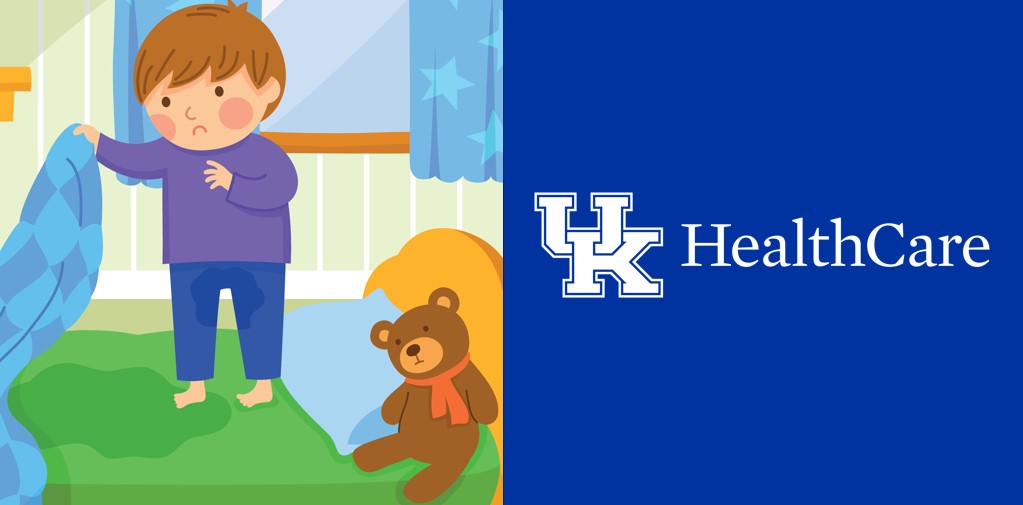UK HealthCast: How to prevent and when to worry about bedwetting

UK HealthCast is a podcast series featuring interviews with UK HealthCare experts on a variety of health-related topics.
This edition of UK HealthCast features Hannah Puntney, pediatric nurse practitioner specializing in pediatric urology. Puntney shared advice for parents on how to handle nocturnal enuresis, or bedwetting.
What typically causes bedwetting?
Hannah Puntney: There are a number of different causes, and it kind of depends on the type of bedwetting you're talking about. There are two different types. You can have primary bedwetting, or primary nocturnal enuresis, and then secondary nocturnal enuresis.
Primary can be caused by a family history. It could be gender. Men or boys tend to be a little bit more prone to bedwetting than women. It could be a lack of hormone that we produce at night called vasopressin. It could be just as simple as a small bladder size or a lack of communication between the brain and the bladder.
Secondary bedwetting is when a child has been dry at night for a period greater than six months. And then, all of a sudden started bedwetting. A lot of times that can be caused by a stressor, you know, a stressful event or there could be a physiologic problem going on like constipation, diabetes, sleep apnea, UTIs, things like that.
What’s considered "normal bedwetting" and when does it become a more concerning issue?
Hannah Puntney: It kind of depends on the families that we see. One of the things I mentioned that causes primary bedwetting is family history. We know that if one parent was a bedwetter, their offspring are 50% (more) likely to have bed wedding. And then, if both parents were bedwetters, they are 75% (more) likely that their offspring will have bedwetting.
The majority of kids between the ages of five to six, 15% to 20% of kids bed-wet So that's still pretty common. When you get closer to the age of 10, about 10% of kids bed wet. Then after the age of 15, only about 1% of adolescents have bedwetting. So it's hard to say what's normal, what's not normal. You know, we just kind of know what ranges are normal in percentages.
What are some steps parents can take to help prevent their children from bedwetting?
Hannah Puntney: Making sure they're peeing regularly during the day. We try to shoot for peeing five to eight times daily. Making sure that they're drinking plenty of fluids kind of towards the beginning part of the day. And then, you can kind of limit that an hour or two before bedtime.
Sometimes our families think it's silly that we want them to drink a certain amount during the beginning part of the day. But drinking water is one of the things that kind of helps the bladder grow. The more we use it, the more urine it has to hold, the more the bladder increases its capacity.
Making sure we're staying away from like caffeine, carbonation, artificial coloring, sugary drinks. In some kids, that can be irritating and then, also monitoring for bowel movements, making sure that the child doesn't have issues with constipation. And that can be a tricky thing. Some kids can be having a bowel movement every day, but it's maybe only a small bowel movement and they're not fully passing everything. And that can put pressure on the bladder over time and decrease the bladder's capacity.
To learn more from Hannah Puntney, listen to the UK HealthCast below:





